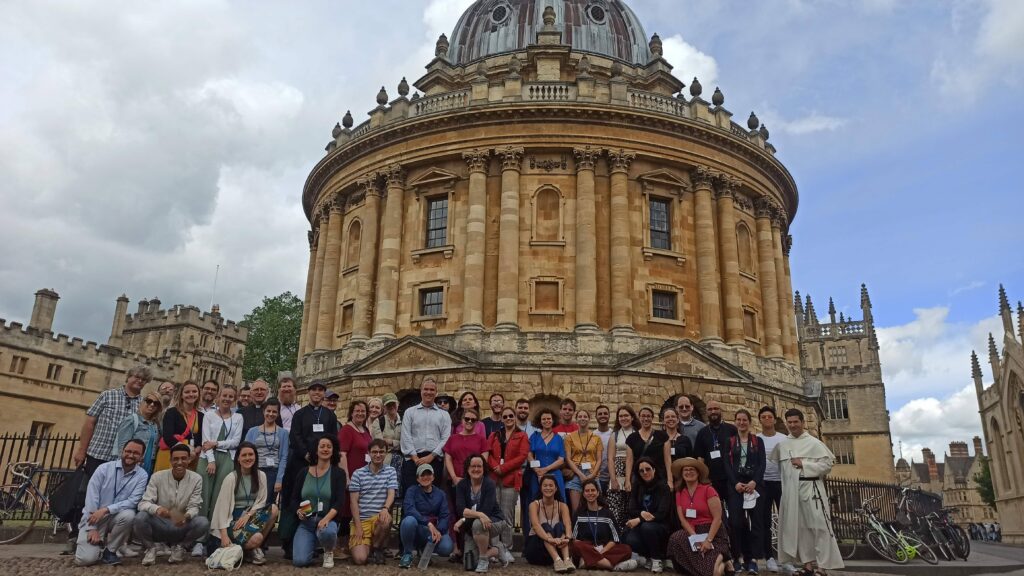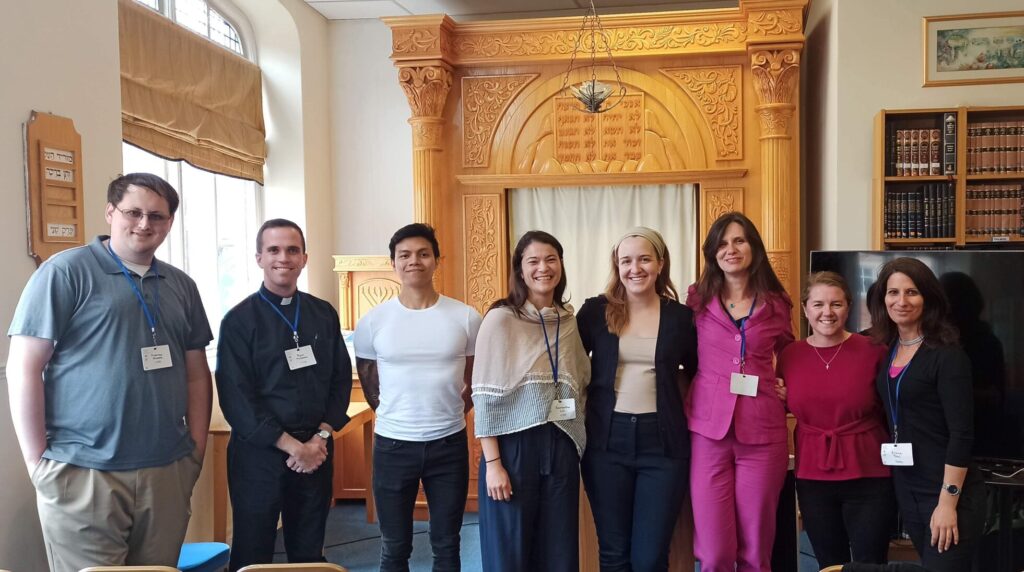This past summer the John Paul II Center for Interreligious Dialogue was happy to support and be a partner for the Emerging Leadership Conference entitled “Leading in Challenging Times” which gathered more than 40 Catholic and Jewish young adults who spent four days together in Oxford, UK, June 25-29.
This biennial conference is one of the expressions of the collaboration carried out by the Holy See’s Commission for Religious Relations with Jews and the International Jewish Committee for Interreligious Consultations (IJCIC), which brings together various organizations from the international Jewish world. Senior Program Manager Elena Dini worked with the two main organizers and supported the initiative representing the JPII Center. Among the young leaders, a good group from our JPII Leaders Network, from the US, Ukraine, Philippines, who contributed to the discussions thanks to their training, knowledge and field experience in Jewish-Catholic dialogue.
Many activities involved the participants in a dynamic that alternated between moments dedicated to getting to know each other, meetings with prominent guests and reflection on the past, present and future of Jewish-Catholic relations starting with the local example offered by England.
Leading the conference was Rabbi Shoshana Boyd Gelfand, vice-president of the IJCIC, together with her Catholic counterpart, Father Norbert Hofmann, secretary of the Commission hosted within the Dicastery for the Promotion of Christian Unity. Also present was the then president of the IJCIC, Rabbi David Sandmel. In addition, the conference was supported by the John Paul II Center for Interreligious Dialogue and the Jewish Theological Seminary’s Milstein Center for Interreligious Dialogue.

“Jewish-Catholic relations have flourished since Nostra Aetate. It is a joy to see leaders of depth from the new generation preparing to take this important work forward, and we are grateful to our colleagues at the Vatican and the John Paul II Center for being our partners in this holy work,” commented Rabbi Boyd Gelfand.
Reflecting on the richness of difference of the assembled participants, JPII Leader Father Ryan Muldoon, newly appointed director of the Office of Ecumenical and Interreligious Dialogue for the Archdiocese of New York, recounts, “During informal moments, such as meals and free time, there was deep sharing among the participants about our faith traditions, religious practices, hopes and fears. I was particularly inspired by meeting with Cardinal Vincent Nichols and Chief Rabbi Ephraim Mirvis, who candidly shared their successes and struggles as faith leaders in a pluralistic and increasingly secular world.”
“Real people with real relationships lead to greater understanding and less conflict. This aspect,” comments Rabbi Roy Feldman of Kehilath Jeshurun in New York, delegate of the Rabbinical Council of America, “was highlighted when we listened to a rabbi and a priest from the Ukrainian church who have worked together to help thousands of displaced people from Ukraine, only being able to do so in such an effective way because of the relationship that already existed between them.”

